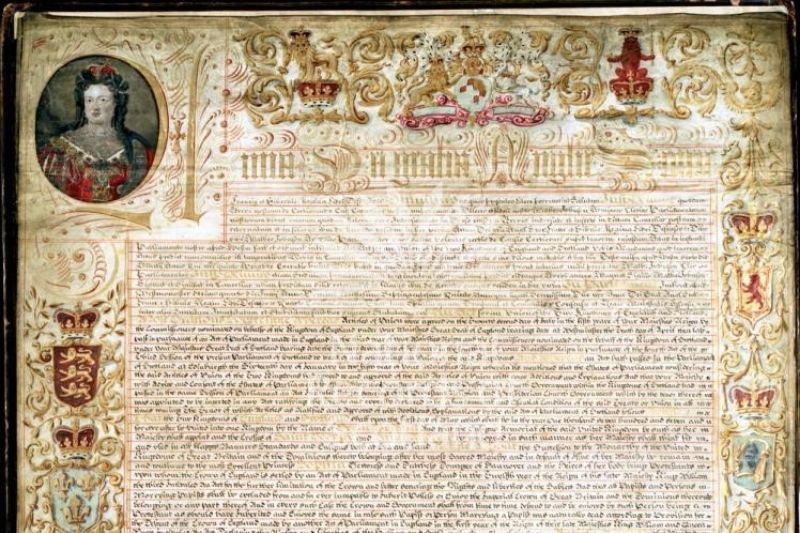TOWARDS A HISTORY OF COMPROMISE: COMPARING POLITICAL UNIONS IN THE BRITISH-IRISH ISLES AND POLAND-LITHUANIA
An event in partnership between the British Academy and Queen's University Belfast.
Date: 23 February 2022, 17:00 – 18:30
Speaker: Professor Robert Frost FBA, FRSE, Burnett Fletcher Chair of History, University of Aberdeen
Chair: Professor Richard English FBA, School of History, Anthropology, Philosophy and Politics, Queen’s University Belfast

Politics in modern democratic and consensual systems depends on compromise, and yet the ability to compromise is not always seen as a virtue. In an age in which political compromise seems ever more difficult to achieve, this lecture considers the history of compromise through a comparison of three early modern unions: between the Kingdom of Poland and the Grand Duchy of Lithuania; between the Kingdom of England and the Kingdom of Scotland; and between the Kingdom of Great Britain and the Kingdom of Ireland.
According to the textbooks, the formation of these unions followed similar paths, from loose personal unions to the creation of parliamentary, or real unions, yet they were very different in their conceptualisation and realisation. This lecture will compare and contrast these unions as exercises in political compromise, and ask whether the differing nature of those compromises helps to explain their different fates.

Robert Frost holds the Burnett Fletcher Chair of History at the University of Aberdeen.
He grew up in Edinburgh, and studied Modern History at the University of St Andrews, where he was taught eighteenth- and nineteenth-century British and Irish history by Norman Gash, and developed an interest in Polish history.
He studied for a diploma in Polish Language and Culture at the Jagiellonian University, Cracow in 1980–1981 and wrote his doctorate, supervised by Norman Davies, at the School of Slavonic & East European Studies, University of London. A revised version was published by Cambridge University Press in 1993 as After the Deluge. Poland-Lithuania and the Second Northern War, 1655–1660. He taught at King’s College London from 1987, and his second book, The Northern Wars: War, State & Society in Northeastern Europe, 1558-1721 was published by Longmans in 2000.
He moved to Aberdeen in 2004, and is currently writing a three-volume history of the Polish-Lithuanian Union for Oxford University Press. Volume One, The Making of the Polish-Lithuanian Union, 1385–1569 (2015) won the Pro Historia Polonorum Prize for the best foreign-language book on Polish history published between 2012 and 2017. Volume Two, The Making of the Polish-Lithuanian Republic, 1569–1648 is nearing completion. Volume Three will be entitled The Downfall of the Polish-Lithuanian Republic, 1648–1815. His short book entitled Identity Unknown? The Polish Portrait of Bonnie Prince Charlie, will be published by Palgrave in its Pivots series in the summer of 2022.

Professor Richard English is Director of the Senator George J. Mitchell Institute for Global Peace, Security, and Justice at Queen’s University Belfast, where he is also Professor of Politics. His books include Armed Struggle: The History of the IRA (2003) and Does Terrorism Work? A History (2016).
He is a Fellow of the British Academy, a Member of the Royal Irish Academy, a Fellow of the Royal Society of Edinburgh and a Fellow of the Royal Historical Society. In 2018 he was awarded a CBE for services to the understanding of modern-day terrorism and political history. In 2019 he was awarded the Royal Irish Academy's Gold Medal in the Social Sciences.
At Queen's University this event is supported by the Vice-Chancellor's Office and the School of History, Anthropology, Philosophy and Politics.
Banner Image: Coat of arms of the Kingdom of Ireland, 1542 – 1800 (as shown on the Custom House Dublin, 1791 and The Coat of Arms of the Polish–Lithuanian Commonwealth, Wikipedia Commons
Image: Exemplification under the Great Seal of England of the Act of Parliament of England ratifying the Treaty of Union with the Kingdom of Scotland 7 March 1707